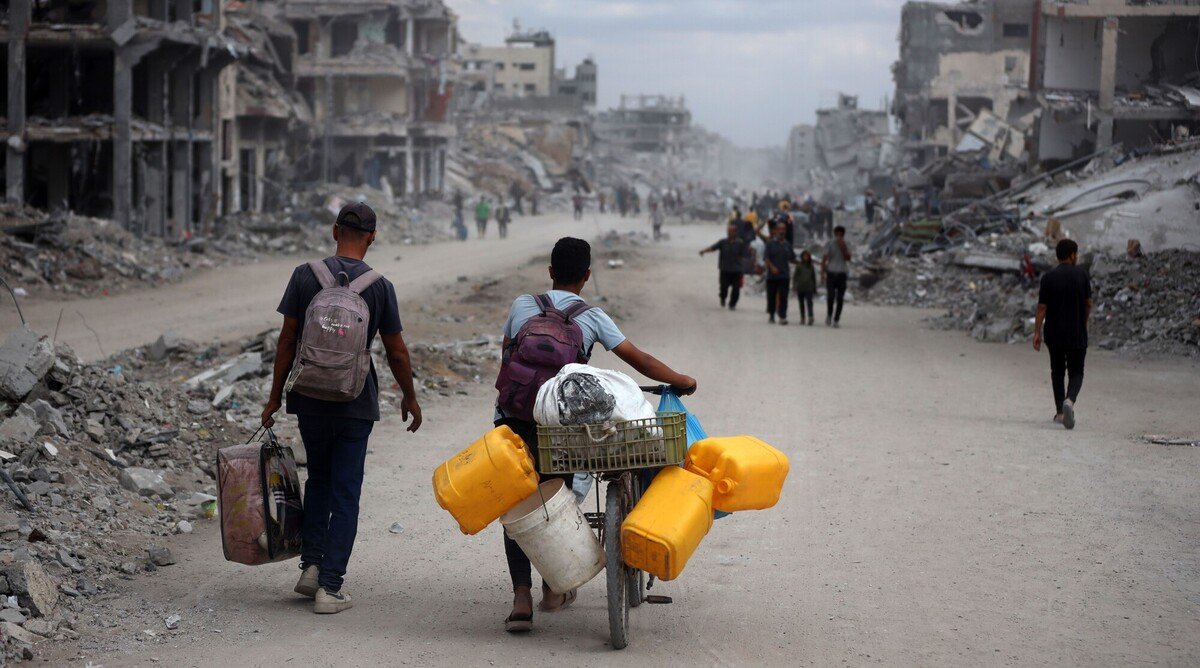Emergency appeal
Gaza Crisis Appeal
Last updated: 20 January 2026
Despite a fragile ceasefire, people in Gaza are still struggling to access food, water, medicine, and shelter. Our local teams and partners are scaling up their response after months of extraordinary challenges delivering humanitarian aid in Gaza.
Please donate now to help restore Palestinian rights and rebuild lives.
Your donations will help provide emergency food, clean water and hygiene kits to people in Gaza.*
What's happening in Gaza?
What is Oxfam doing in Gaza?
Credit: Alef Multimedia Company/Oxfam
Everything is now unavailable. Maram keeps asking why everything is unavailable. Fruits and vegetables have disappeared.”
- Raed Mansour.
Raed plays with his children in the house he has been displaced to after he lost his home. He and his wife are challenged to make food for their three children who have lost significant weight.
